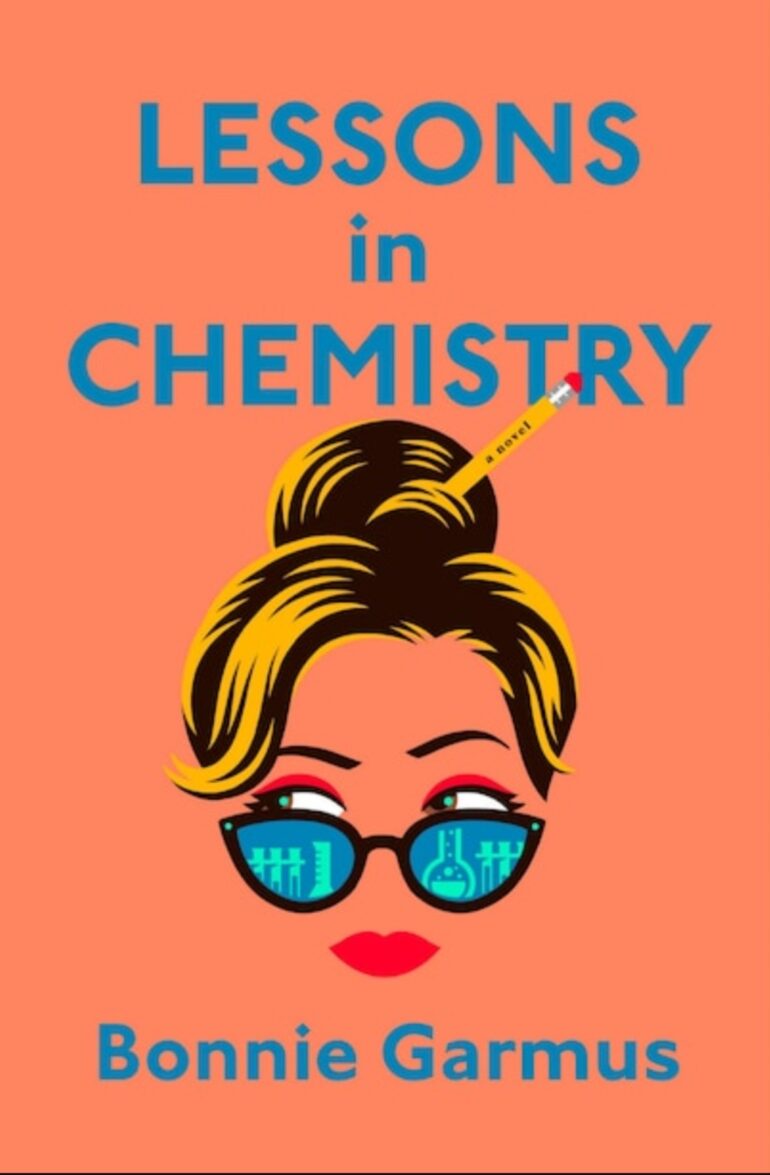I’m excited to tell you about two books I thoroughly enjoyed reading. Both are first novels for these excellent writers. I loved both books, especially because of the communicating animals; they aren’t the main characters, but of course the animals steal the show.
In “Lessons in Chemistry” by Bonnie Garmus, Elizabeth Zott is a highly intelligent research chemist in the 1950s and ’60s. She’s “someone who was not average and never would be.”
She falls in love with Calvin, another brilliant chemist. As a man, he’s treated very well by the working world, while women, including Elizabeth, are not. As an example, after graduation, he received 43 employment offers. Elizabeth received one. “When it came to equality, 1952 was a real disappointment” to Elizabeth.
For young women, this is what “feminism” and the women’s movement were all about — women like her who fought for equality so today’s women don’t have as much of a battle. She was #metoo long before Hollywood. “Elizabeth Zott held grudges … mainly reserved for a patriarchal society founded on the idea that women were less. Less capable. Less intelligent. Less inventive. A society that believed men went to work and did important things … and women stayed at home.”
She longs for “a place where … she didn’t have to brace herself for the men who would invariably talk over her, or worse, take credit for her work.” With one colleague, “she endured the day-to-day degradations — the touches, the lewd comments, the rank suggestions — while making it clear she had no interest.” And worse.
Unlike other men, Calvin respects her opinions. But he has no idea what she has to go through. “What sex discrimination?” he asks innocently. She tries to explain that the scientific community shuns women: “Too many brilliant minds are kept from scientific research thanks to ignorant biases like gender and race. … Half the population is being wasted.” He just doesn’t get it: “Why wouldn’t we want women in science? That makes no sense. We need all the scientists we can get.”
After they find each other, a wonderful dog finds them. Ever the scientist, Elizabeth experiments with teaching the animal words, and this dog, who communicates with the reader, will have a strong effect on their lives.
Later, she becomes the host of a popular TV cooking show, “Supper at Six,” during which she doesn’t just share recipes; she teaches her audience the chemistry of cooking.
Don’t get the wrong idea: It isn’t an anti-male screed. This is a quirky book about really intelligent people who may not be too good in social situations. Some readers may not like the anti-religion sentiment. (Elizabeth believes only in science.)
I laughed out loud many times; I related with the main character; I fell in love with the dog. The pooch reminds me of the dog in “The Art of Racing in the Rain,” another of my all-time favorite reads.

“Remarkably Bright Creatures” by Shelby Van Pelt introduces us to a Giant Pacific octopus named Marcellus, who’s being held in what he calls “wretched captivity” at an aquarium north of Seattle.
He can read. “Yes, I can read. I can do many things you would not expect,” he tells us. “I can use tools. I can solve puzzles. None of the other prisoners have such skills.” He’s learned from the information card on his tank that he’s almost reached the end of an octopus’s life span.
Marcellus tells us, “No other creature here possesses intelligence like mine. It is lonely.” Tova, age 70, the night shift cleaner at the aquarium, likes to talk to the “inmates.” The octopus, longing to communicate with another being, chooses Tova. He says, “The elderly female who mops the floors … speaks to me. We … converse.”
She discovers that Marcellus likes to get out of his tank, mostly to find something to eat besides his usual bland diet. He tells us how he escapes and gets back into his tank, with no human the wiser. Also, as Tova says, “I believe he is bored.”
“I remember each and every human face that pauses to gaze at my tank,” Marcellus admits. “I can tell which particular human has touched the glass of my tank by the fingerprints left behind.”
I appreciated the expressive writing, as when Marcellus hears a human say “Ignorance is bliss” and tells us it’s the most ludicrous thing he’s heard. “I am imprisoned in this dreadful place. What would a captive cephalopod know of joy? I will never again know the thrill of a wild hunt in the open sea. I will never bask in a silver shimmer of moonlight as it filters down through the water from an endless midnight sky. … But I have knowledge. … With this knowledge, I have achieved something akin to contentment. Or, perhaps more accurately, a temporary abatement of misery.”
In the human part of the storyline, Tova thinks it’s time to leave her close circle of friends and move into a senior citizen community. But a nice man may have other ideas for her future. Meanwhile, Cameron, 30, has lived with his aunt since his mother abandoned him long ago. Using clues his mother left behind, he sets out to find the wealthy guy he believes could be his father, aiming to hit him up for megabucks in delayed child support.
The storyline of the human characters is a little slow-going at times, but there are several love stories. There’s also a mystery, which Marcellus and the reader can figure out long before the humans in the book do. And you’re absolutely going to fall in love with an octopus! I did, on page one.
Both of these are definitely make-you-feel-good books. Both made me laugh. Both made me cry. Both are terrific reads. In fact, they’re on my best-of-the-year list.
Happy reading!
Mary Louise Ruehr is a books columnist for The Portager. Her One for the Books column previously appeared in the Record-Courier, where she was an editor.


